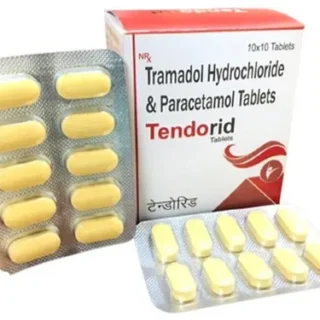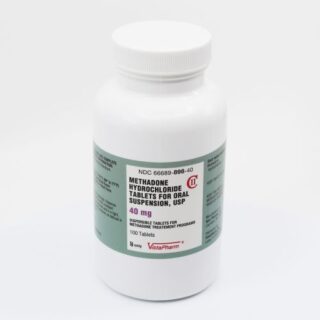Aprobarbitone pills
350 € – 1 280 €Price range: 350 € through 1 280 €
Aprobarbitone, also known by the trade name Cymbalta in some regions, is a barbiturate medication used to treat severe anxiety, insomnia, and seizure disorders. As a central nervous system depressant, it works by slowing down brain activity, leading to a calming effect on the body and mind. It was historically used for conditions requiring sedation and anxiety management but has largely been replaced by other medications with fewer side effects and lower abuse potential. Aprobarbitone Pills
Aprobarbitone pills
Aprobarbitone Pills. Aprobarbitone Online From The Best Website Online Nembutal Pharmacy Nembutal Pharmacy has extensive experience in this field. We now have a thorough understanding of the needs and viewpoints of clients worldwide. Our goal is to fulfill all of the requirements related to aprobarbitone. Our pharmacy is the greatest place to purchase Aprobarbitone online. This medication is available from us at reasonable costs. We will deliver it to you within the specified time frame, and you can conveniently purchase it from us.
Chemical & Physical Properties:
-
Chemical Name: 5-ethyl-5-(2-propylpropyl)-barbituric acid
-
Molecular Formula: C11H16N2O3
-
Molecular Weight: 228.26 g/mol
-
Appearance: Aprobarbitone is typically found in pill or tablet form.
Primary Uses of Aprobarbitone:
Aprobarbitone was primarily used to manage the following medical conditions:
-
Severe anxiety: Aprobarbitone has sedative and calming effects that helped control anxiety symptoms.
-
Insomnia: It was used as a sleeping aid for patients experiencing chronic insomnia or sleep disturbances.
-
Seizure disorders: As a barbiturate, it helped in controlling seizures or epileptic episodes.
However, Aprobarbitone has largely been replaced in medical practice by benzodiazepines and other non-habit-forming medications, which have a lower potential for abuse and fewer dangerous side effects.
Mechanism of Action:
Aprobarbitone works by enhancing the effects of GABA (gamma-aminobutyric acid), a neurotransmitter that inhibits brain activity. By increasing GABA’s effects, Aprobarbitone produces sedative, calming, and muscle-relaxant effects. It has a depressant effect on the central nervous system, which leads to relaxation, drowsiness, and reduced anxiety.
Side Effects and Risks of Aprobarbitone Pills:
Although Aprobarbitone was effective in treating the above conditions, it carries significant side effects and health risks:
-
Addiction potential: Aprobarbitone is a barbiturate, and like other drugs in this class, it has a high potential for abuse and dependence.
-
Overdose risk: High doses can lead to respiratory depression, coma, or death. Mixing Aprobarbitone with other depressants (like alcohol or benzodiazepines) increases the risk of overdose.
-
Cognitive and motor impairment: Aprobarbitone can impair judgment, coordination, and reaction times, making tasks such as driving dangerous.
-
Withdrawal symptoms: If taken for a long period, abrupt discontinuation can result in withdrawal symptoms, including anxiety, tremors, and seizures. Aprobarbitone Pills
-
Mental health effects: Long-term use may worsen conditions like depression or mood disorders.
| Pills | 100 pills, 200 pills, 500 pills, 1000 pills |
|---|
Related products
-
Tramadol
414 €Select options This product has multiple variants. The options may be chosen on the product pageTramadol is a prescription pain medication used to treat moderate to moderately severe pain. It is an opioid-like pain reliever, although it works a little differently from traditional opioids like morphine or oxycodone. Tramadol acts on the brain and nervous system to relieve pain and is considered to have less risk of dependence compared to stronger opioids, but misuse and addiction are still possible.
200 (40 x 5 milliliters) Dosage 5mg/mL
-
JWH-250
409 € – 4 016 €Price range: 409 € through 4 016 €Select options This product has multiple variants. The options may be chosen on the product pageJWH-250 is a synthetic cannabinoid belonging to the naphthoylindole class of compounds. It is a potent agonist at CB1 and CB2 receptors, mimicking the effects of tetrahydrocannabinol (THC), the primary psychoactive compound in cannabis. It was originally developed by John W. Huffman, a chemist who synthesized a wide variety of cannabinoids for research purposes to understand the effects of cannabinoid receptors. Like other synthetic cannabinoids, JWH-250 is often found in “Spice” or “K2” products, which are marketed as legal alternatives to cannabis. However it is much more potent than THC, making it more likely to cause adverse effects and health risks.
-
Methadone pills
250 € – 300 €Price range: 250 € through 300 €Select options This product has multiple variants. The options may be chosen on the product pageBuy Methadone pills are a synthetic opioid medication primarily used for:
-
Pain relief (moderate to severe chronic pain)
-
Opioid addiction treatment (as part of medication-assisted therapy for heroin and other opioid dependencies)
Methadone works by binding to opioid receptors in the brain, reducing withdrawal symptoms and cravings without producing the intense high associated with other opioids. It has a long half-life, meaning it stays in the body longer, requiring less frequent dosing compared to drugs like heroin or oxycodone. Buy Methadone pills
-
-
Roxicodone (oxycodone)
556 € – 1 083 €Price range: 556 € through 1 083 €Select options This product has multiple variants. The options may be chosen on the product pageBuy Roxicodone is the brand name for oxycodone, a strong prescription opioid pain medication used to treat moderate to severe pain. It works by altering the way the brain and nervous system respond to pain, providing effective relief for those with acute or chronic pain.
Roxicodone is available in immediate-release form, which means it provides quick relief but has a short duration of action compared to extended-release formulations (like OxyContin).
Top rated products
-
 Gamma-Butyrolactone Powder
250 € – 1 800 €Preisspanne: 250 € bis 1 800 €
Gamma-Butyrolactone Powder
250 € – 1 800 €Preisspanne: 250 € bis 1 800 €
-
 JWH-250
409 € – 4 016 €Preisspanne: 409 € bis 4 016 €
JWH-250
409 € – 4 016 €Preisspanne: 409 € bis 4 016 €
-
 CBD Premium CO2 Extracted Oil
150 € – 1 250 €Preisspanne: 150 € bis 1 250 €
CBD Premium CO2 Extracted Oil
150 € – 1 250 €Preisspanne: 150 € bis 1 250 €
-
 4- Ethylmethcathinone (4-EMC)
270 € – 9 000 €Preisspanne: 270 € bis 9 000 €
4- Ethylmethcathinone (4-EMC)
270 € – 9 000 €Preisspanne: 270 € bis 9 000 €
-
 Nembutal Pill
450 €
Nembutal Pill
450 €





Reviews
There are no reviews yet.